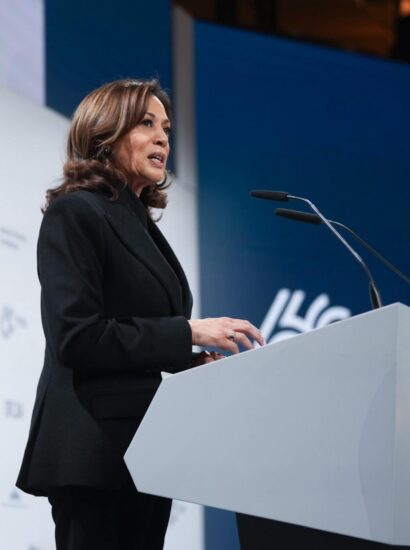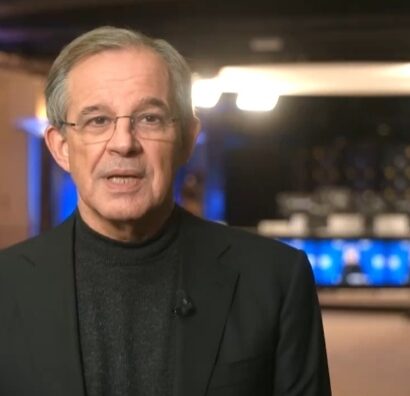In the center of Europe we are used to the analysis of the war between Russia and Ukraine, since the conflict is really close and affects us in the economic situation. However, Spain, together with Portugal, are the European countries farthest away from the conflict and less affected by it. For this reason, it is interesting to analyze how Spanish politicians and society see this conflict. For this analysis of the war in Ukraine from the Spanish perspective, we have Rubén Herrero de Castro, political scientist, doctor and professor of political science at the Complutense University of Madrid.
How is the Russian-Ukrainian conflict viewed in Spanish society?
In Spanish society, this conflict is perceived as a remote one. Part of our society does not understand the international effort that must be made to defeat Russia.
Arguably, there is no doubt about Russia’s culpability, but there is a question about whether or not we should get involved.
Part of our society lives in a comfort zone that puts immediate costs before geopolitical approaches in the medium or long term. This lukewarm approach is influenced by the dependence we have on Russian energy, as a result of the disastrous energy policy implemented by successive governments of the Socialist Party (left) and the People’s Party (center right) that chose to corner nuclear energy, taking for granted supplies from Russia and Algeria, as well as a supposed efficiency of renewable energies. Although, our dependence does not reach a dramatic level, as it does in Germany.
What is the government’s official position on the war in Ukraine?
Part of our government, the wing of the Socialist Party, officially supports the cause of Ukraine and the need for an international effort on its behalf. However, the communist wing of the Government of Spain, represented by the Podemos party, does not support any commitment to Ukraine, beyond a sterile promotion of peace and diplomacy. It should be remembered that this party publicly wields an anachronistic and infantile antimilitarism.
In any case, our government has committed aid to the Ukrainian government, but it has not been implemented except with irrelevant material and inefficient means.
Beyond a puerile campaign of self-propaganda, nothing has been done for the cause of Ukraine.
Podemos (far left) has distanced itself several times from its government partner, the Socialist Workers’ Party (PSOE). Why do you think they have another position?
I have partially answered this question previously. It can be added that the unique and relevant position of the United States in this conflict is another argument put forward by this communist formation, which pathetically does not miss an opportunity to exhibit a childish anti-Americanism. It is for this reason that they usually defend the positions of China and Russia on the international stage, as an alternative to US hegemony. Let us not forget that their partners, the Latin American communist regimes, receive aid from these two countries.
What is the position of the main opposition parties?
The second political force, the People’s Party, defends the position of the European Union, without providing more content or proposing more measures or censuring the government for its ineffective support for Ukraine. This party, as in so many other issues, does not want to establish its own approach and joins the politically correct on all possible occasions. The same does not happen with VOX (patriotic and conservative movement), which supports the position of the European Union in this regard, but brings its own content to the issue, such as an express denunciation of the Russian war of aggression and pointing to Putin, as a war criminal. In addition, VOX requires truly effective measures and establishing the future geopolitical configuration of Ukraine and that space in Eastern Europe.
That is, this war must be won to establish new geopolitical coordinates, where something like this cannot happen again.
We have seen how Spain has been one of the EU countries that has increased gas imports from Russia the most, how has it been seen by the Spanish society? Do they know it?
Spanish society has this information, but does not enter into an evaluation of it. Everything seems to go, as long as energy is available, even if it is not affordable. Only VOX has pointed out this inconsistency with our foreign policy towards Ukraine. And only VOX, has pointed out the energy suicide of Spain, a country, which because of the ideological laws protected by the farce of climate change, prevent Spaniards from prospecting and extracting the abundant energy resources we possess, such as shale gas, oil, rare earths or uranium.
Spanish society conveniently indoctrinated for decades in green fundamentalism with the complicity of the Socialist Party and People’s Party, begins to wake up, alerted by VOX, which as on so many other occasions, with other uncomfortable issues, has put on the table the debate on energy sovereignty and nuclear energy.
Ramón Tamames was the person chosen by Vox for the no-confidence motion. In his speech as an alternative to preside another government he stated the following: “What is today’s EU? Has the United States come to bring us the war in Ukraine and will China have to com to save us – referring to the attempt of peace agreement in the war. Why so many resources and so many meetings if after the experience of Yugoslavia we continue with a war that we have not brought and we are not going to solve? Regrettable.”
Professor Tamames, without being a member of VOX, was proposed for the motion of censure that you comment, given his administrative solvency and political independence to dissolve parliament and call elections. He is not part of VOX and as such, does not share views on various issues with this party. Reflection on this international one is one of them.
However, in the background of his words there is a connection with the VOX discourse, regarding the lack of means and political will of the European Union, to be a protagonist actor in this conflict.
Also in the background can be extrapolated the question shared with VOX, regarding what Europe we want, if one of the sovereign homelands or the EU of bureaucrats that exists today, folded to the sinister 2030 agenda and cultural Marxism, which believes that wars are won by singing the Imagine song, releasing colored balloons or applying absurd gender perspectives to conflicts. We can not be naive, conflicts are resolved by firepower and political will.
Finally, as a doctor and professor of political science, could you give us your opinion on how you think the conflict can end?
This conflict will end with the defeat of Russia, they do not have the right narrative, the necessary logistics, the right allies or the proper combat morale of their soldiers. All decisions affecting the war and Russia’s foreign policy are tainted with subjective aspects, which have nothing to do with security or national interests. They fight in a terrain for which they are not prepared, suffer more casualties than their enemies and their demographics cannot replace those casualties. They face Ukraine backed by the international community, which supplies it with everything necessary to win, except the soldiers that Ukraine deploys, with the outstanding combat morale of those fighting for their homeland. Russia will lose, because Ukraine fights our war and because if Russia wins, Europe is over and the international environment will become much more hostile than it already is. Then there would be an actor, Russia, that will attack weaker countries outside the framework of alliances without any opposition.
Rubén Herrero de Castro is a political scientist and professor of political science at the Complutense University of Madrid.







